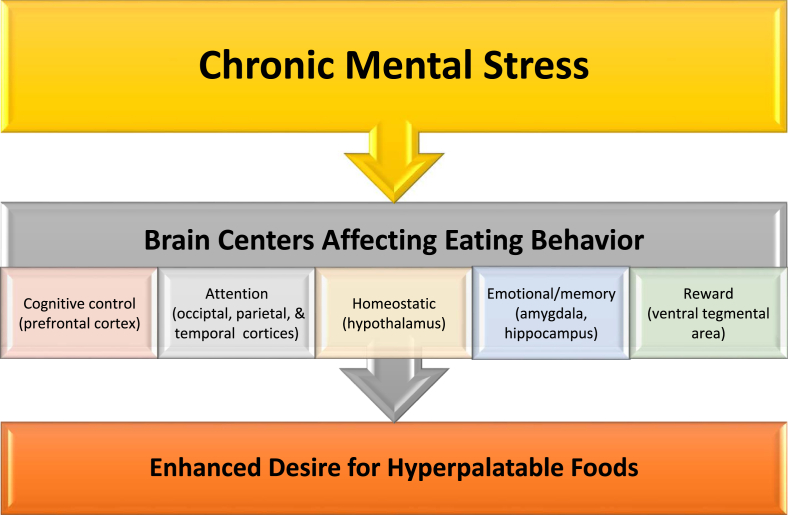Fig. 9.
Chronic psychological/mental stress and eating behavior. Eating behavior is mediated by multiple brain areas and processes. The research, manufacturing, advertisement, availability, lower cost, and consumption of hyperpalatable ultra-processed foods may contribute to increased adiposity by facilitating central nervous system-mediated food seeking behavior, that in some cases, may lead to addiction-like eating behavior. Chronic mental stress can accentuate obesogenic potential by effects upon the cerebrum (i.e., frontal, parietal, occipital, and temporal lobes), limbic system (i.e., hypothalamus, thalamus, amygdala, hippocampus), and the ventral tegmental area (midbrain which sends dopaminergic neural projections to both the cortical and limbic areas) leading to altered eating behaviors and an enhanced desire for hyperpalatable foods (i.e., containing high fat and high sugar) [4,39,40].

